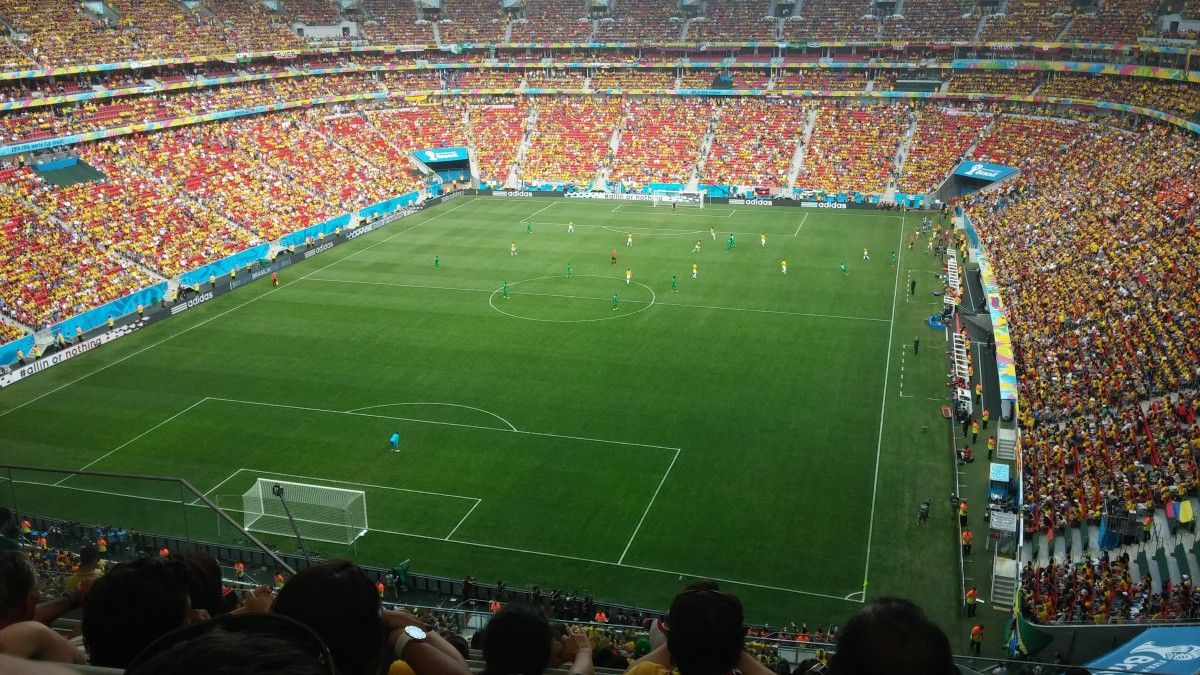Playing it safe in the World Cup does a disservice to competition
No other competition carries the prestige or the emotion of the World Cup, yet in the final round of group games we were presented with three matches in which one or both teams attempted to fix their Round of 16 draw. Not only is this frustrating for fans inside the stadium and watching internationally, but also goes against the standard of fair play we might expect from FIFA’s showpiece event.
West Germany and Austria played out a 1-0 West German win, seemingly content with this mutually beneficial result beforehand
Of course, this is nothing new. In the 1982 World Cup in Spain, West Germany and Austria played out a 1-0 West German win, seemingly content with this mutually beneficial result beforehand. This result ensured both teams went through and knocked Algeria, who had played earlier, out. Subsequently this was branded the ‘Disgrace of Gijón’, and from Euro ’84 onwards the final games in a group were played simultaneously. The issue seemed to have been resolved.
However, in these World Cup group stages we have seen Denmark and France play out a 0-0 draw and go through, Belgium and England settle for a 1-0 finish to take them both through, and then Japan not even trying to score when 1-0 down against Poland, knowing that collecting yellow cards would put them at risk of going out. It’s worth looking at each of these examples individually.
France did not want to win at the risk of injuring players and Denmark knew a draw was all they needed
On Tuesday 26 June, France played Denmark at the Luzhniki Stadium in Moscow. France had already qualified after winning their opening two games and a draw was all Denmark needed to finish ahead of Australia. France rested many of their top players, starting the likes of Lemar, N’Zonzi, Kimpembe, and Mandanda in lieu of their first team players. Therefore, it’s probably no surprise that both sides played out a drab affair. France did not want to win at the risk of injuring players and Denmark knew a draw was all they needed.
Similarly, on Thursday 28 June Belgium defeated England 1-0, both teams having already qualified before the game. At stake in this game was entry into the supposed ‘easy’ side of the draw for the loser. Neither team was really playing to win, though Adnan Januzaj clearly hadn’t got the message after scoring early in the second half. When it was put to Gareth Southgate, the England manager, that if he had wanted to win he would have brought on Harry Kane, he responded “Yeah, of course.”
Senegal became the first team in World Cup history to be knocked out on a fair play ruling
Finally, on the same day as the England-Belgium game, Japan lost 1-0 to Poland. Spending the latter half of the match just passing it around, as they knew if they could avoid yellow cards they could progress over Senegal on fair play. This panned out as expected and Senegal became the first team in World Cup history to be knocked out on a fair play ruling, ironically because Japan refused to play fair.
In light of these results it is appropriate to quote from FIFA’s own code of conduct. This is what it says is one of the golden rules of playing football:
“1. Play to win
Winning is the object of playing any game. Never set out to lose. If you do not play to win, you are cheating your opponents, deceiving those who are watching, and also fooling yourself.”
Martinez and Southgate are only being clever in the way that Neymar is, for example, by diving to buy a free kick
The conduct of Denmark, France, England, Belgium, and Japan breaks the code of conduct that football’s governing body is supposed to hold all teams to. The France-Denmark and England-Belgium games are not too far away from match-fixing, so surely it is appropriate for FIFA to at least hand out a warning, if not an actual punishment.
Some media has attempted to view Martinez, the Belgium manager, and Southgate as being clever by approaching their final game in this way. I suppose they may be, however they are only being clever in the way that Neymar is, for example, by diving to buy a free kick.
These results were not only boring, but examples of poor sportsmanship. Aside from punishing those who don’t play to win (which is difficult to prove in itself), there is little the sport can do to regulate against results such as Denmark-France. But I think randomised Round of 16 draws would solve the problem with the England-Belgium game. Of course, this would cause more havoc with scheduling, but this would probably be acceptable to avoid gamesmanship of the draw. Whatever the case, these games expose frailty in both the system of group stages and the Round of 16 draw.

Comments